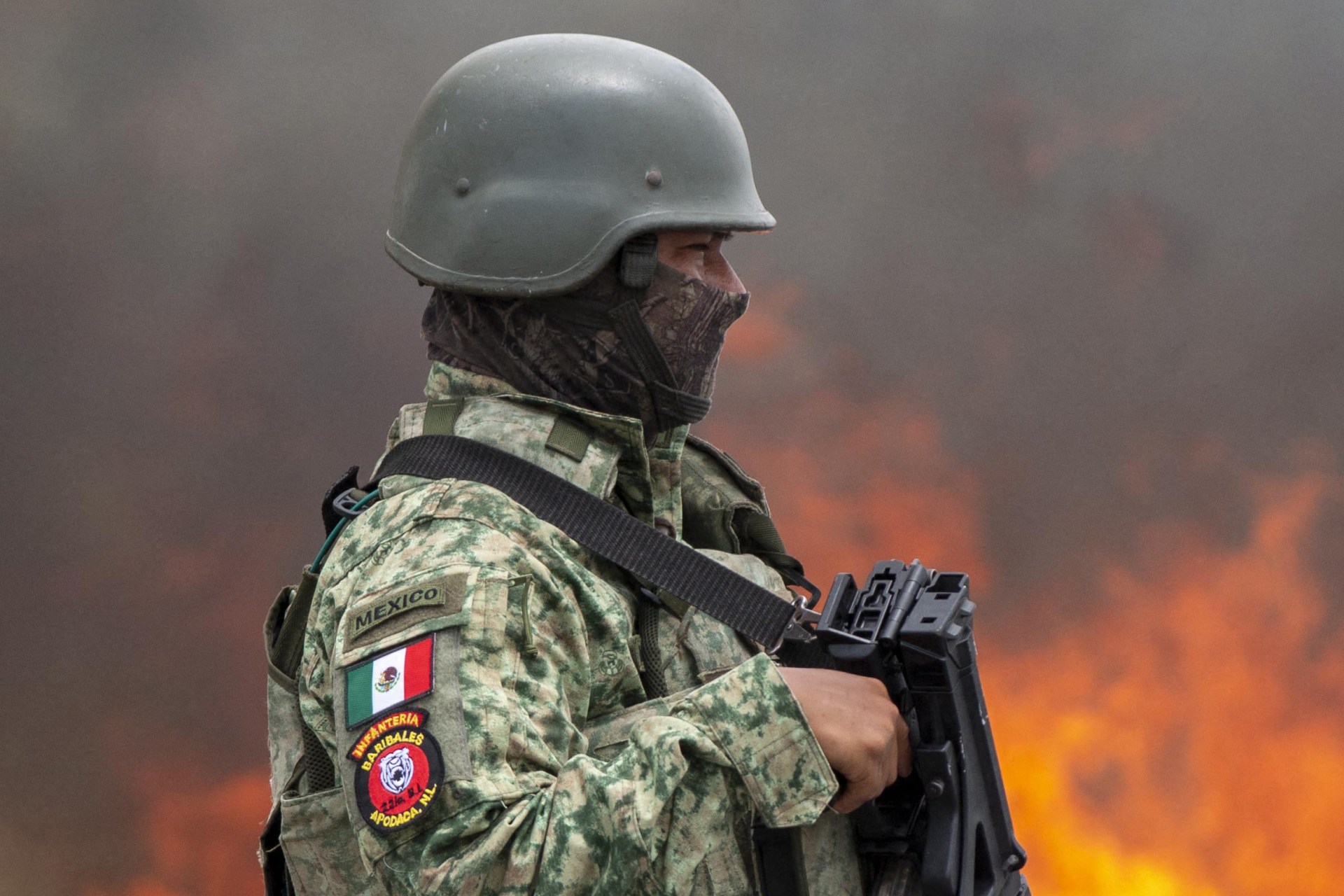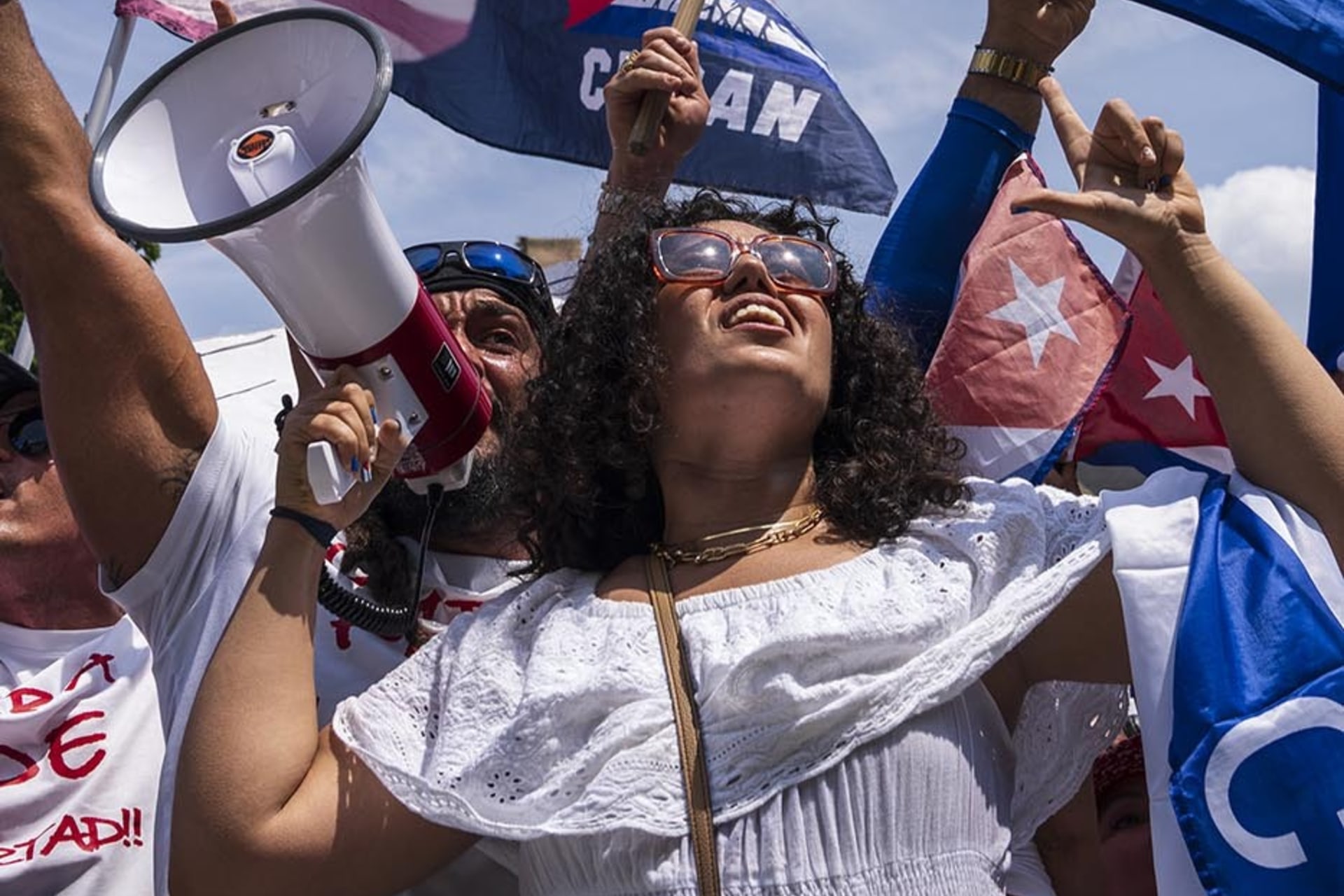Iraq’s Sunni Arabs
Published
This publication is now archived.
Who are Iraq’s Sunnis?
The divisions among Sunnis that surfaced in the run-up to the October 15 referendum highlight both the fractiousness of the Sunni leadership and the various ethnic, political, and geographic divisions within the Sunni community. Sunnis, who comprise around 20 percent of Iraq’s population, are far from a monolithic group. The majority of them are ethnic Arabs, but there are also Sunni Turkmen, Kurds, and other minorities thrown into the mix. They share different political goals as well: some secular, highly nationalistic ex-Baathists, who favor restoring a strong, centralized state. These include members of the insurgency and those sympathetic to the insurgents’ goals, if not their violent methods. Others are more religious, parochial, and motivated by tribal interests. Not all Sunni Arabs support the Sunni-led insurgency, but nearly all agree Iraq should remain a unified state.
Where are they located?
Most Sunni Arabs reside in central Iraq, including the so-called Sunni Triangle, an area that stretches northwest of Baghdad and encompasses insurgent strongholds like Tikrit (Saddam’s hometown), Ramadi, Samarra, and Fallujah. At least half of Iraq’s Sunni community live in cities, such as Baghdad or Mosul, and form the backbone of Iraq’s educated middle class, working as lawyers, doctors, and bureaucrats. It is not uncommon for these Sunnis to intermarry with ethnic Shiites. Urbanized Sunnis are also secular, in large part because Saddam’s Baath Party emphasized a socialist, non-religious Iraqi state. Many of these Sunnis say the constitution offers too much authority to sharia, or Islamic law, which is favored by Iraq’s highly influential Shiite clerics. Recent polls by Zogby International indicate that roughly three-quarters of Iraq’s Sunnis favor a secular state.
Sunnis who reside in the countryside are less educated but more diverse, motivated more by family, clan, or regional interests. “Tribal politics is the overwhelming interest,” says Judith Yaphe, senior fellow at the National Defense University. Sunnis living near the Syrian border are believed to be helping the Sunni insurgents and foreign jihadis holed up in the region. For instance, in Tal Afar, which is 70 percent Sunni Turkmen, the local Sunni population was suspected of aiding the Sunni Arab guerillas in the region prior to a recent sweep of the city by U.S. and Iraqi forces.
What are the Sunnis’ main political affiliations?
During the Ottoman and British rule of Iraq, Sunnis were the dominant political entity. The same was true after Saddam Hussein’s Baath Party took power in a military coup in 1968. These days, with Saddam behind bars, experts say the Sunni leadership is much more fractured and incoherent, and increasingly turning off Sunni voters. Sunnis were instructed to boycott the parliamentary elections, which only hurt their political influence. Some Sunni leaders are looking ahead to December’s parliamentary elections to re-stake their claim in Iraqi politics. Iraq’s Sunni leadership comprises a number of parties, coalitions, and other political associations. Among them are:t
- Iraqi Islamic Party. Loosely associated with Egypt’s Muslim Brotherhood, the Iraqi Islamic Party was the sole Sunni group that briefly participated in the interim parliamentary elections in January. More recently, the party has indicated it will urge its members to vote “yes” on the referendum after last-minute concessions on reforming the constitution were made by Kurdish and Shiite leaders.
- Muslim Clerics Association. Formed after the U.S.-led invasion of Iraq in 2003, this hard-line, influential group of Islamic clerics is composed of both Sunni Arabs and Sunni Kurds. The association, which is neither pro-insurgency nor pro-United States, has good relations with Shiite clerical leaders, including Muqtada al-Sadr and Grand Ayatollah Ali al-Sistani. Its clerical leadership says the constitution may split up Iraq and weaken the country’s Arab identity. The group’s influence is the strongest in the western parts of the Anbar province west of Baghdad, one of Iraq’s two governorates expected to vote down the constitution.
- Iraqi Council of National Dialogue. A powerful bloc of Sunni parties, the Iraqi Council of National Dialogue boycotted January’s parliamentary elections. The coalition is split on whether to boycott the referendum or vote “no.” The group has said the constitution gives too much power and oil revenues to the majority Shiites and Kurds.
- Conference of the People of Iraq. Formerly called the General Conference for Sunnis in Iraq, this coalition of political parties also opposes the constitution. Led by Adnan Dulaimi, a powerful Sunni leader who has criticized the constitution’s language on federalism, the Conference of the People of Iraq has strongly criticized anti-Shiite terrorist attacks in Iraq and called for more national reconciliation.
Colophon
Staff Writers
- Lionel Beehner





